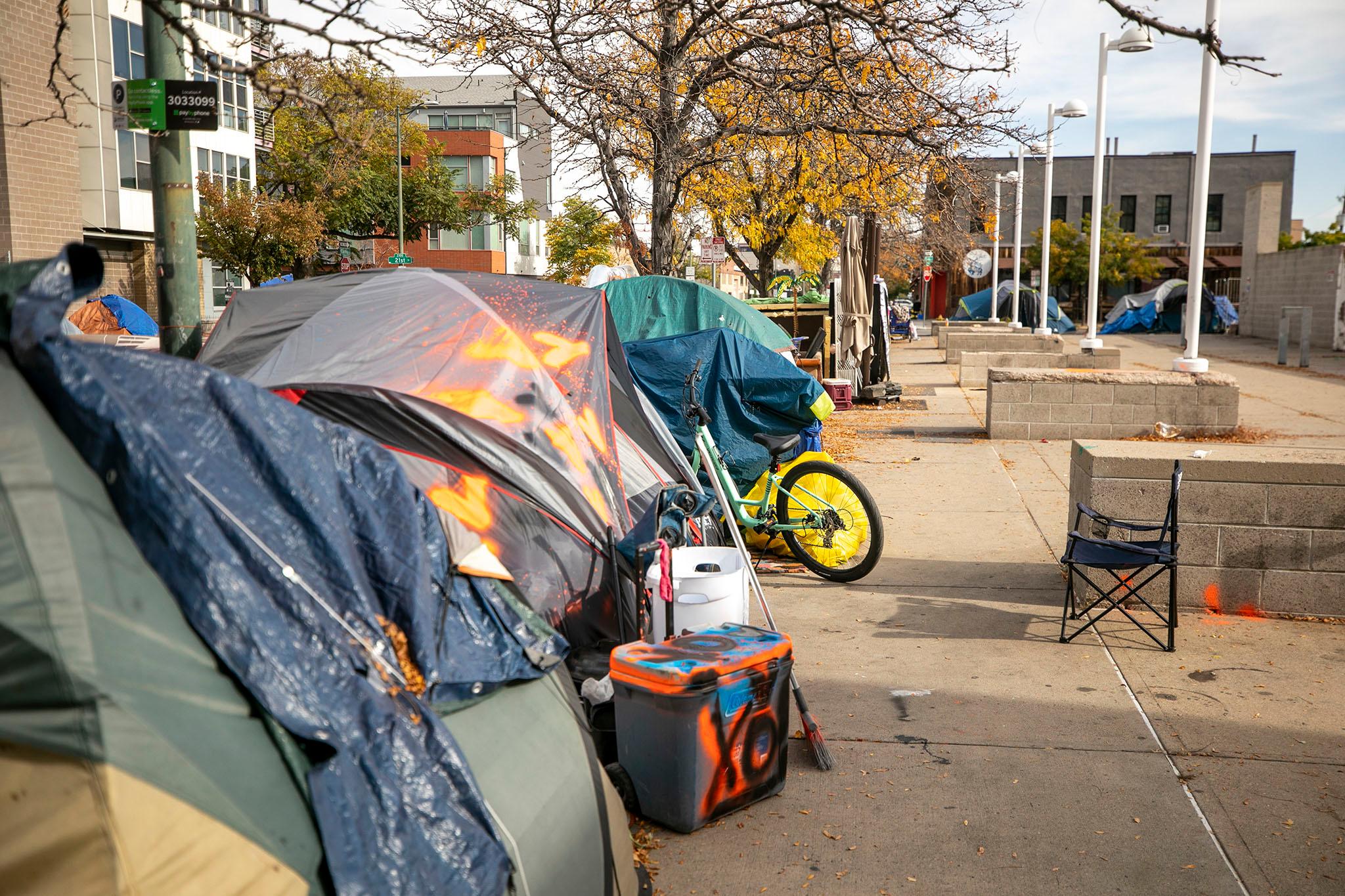The City of Denver is preparing to permanently close a second encampment and move roughly 50 unsheltered people from 21st and Curtis Streets into an undisclosed hotel on an unknown date.
Why the secrecy over the details?
"Privacy," according to a Homelessness Resolution Operations Center statement.
This is part of Mayor Mike Johnston's House1000 initiative to put a thousand people living outside in unsanctioned camps into shelter and on a path toward housing.
"This marks real progress toward our ambitious goal to bring 1,000 unsheltered Denverites indoors by the end of the year," Johnston said in a statement.
So far, 183 people have found some sort of indoor shelter as part of the effort, according to the city's House1000 dashboard. That ranges from rental units or family homes to group shelters and converted motels.
The news of the second permanent closure comes after weeks of traditional encampment sweeps where people and their belongings were punted from one block to the next.
Activist groups describe these sweeps as "traumatic displacement" and Johnston himself, who oversees them, has described them as ineffective.
Housekeys Action Network Denver has threatened to pull support for the mayor's State of Emergency unless he fulfills his promise to only remove encampments when such actions is accompanied by real offers of housing; prioritize vulnerable people experiencing homelessness, whether they live in group shelters or outside; and increase transparency and accountability measures for the House1000 campaign.

Meanwhile, several City Council members have expressed ambivalence about supporting his state of emergency and three voted against the most recent extension. The emergency declaration allows Johnston's administration more flexibility on spending and hammering out contracts.
How will the second encampment closure work?
City outreach workers have already connected with residents at 21st and Curtis and have identified the people who will be relocated to more stable shelter.
The city has been offering portable toilets, hand-washing stations and trash removal on the site in advance of the move.
On moving day, individuals will be transported to a hotel that will include wraparound services for job placement, mental and physical healthcare and more until they can move into more permanent homes.
"Providing a safe, stable place to live with wraparound support services helps address homelessness while also revitalizing our neighborhoods, enhancing quality of life, and building a more vibrant Denver for all," Johnston said.

But permanent homes in Denver are in short supply, and how long that transition will take is unknown.
Johnston told Denverite the city will be tracking the long-term housing outcomes of all people brought inside. The city has said any person who stays inside for at least 14 days will be considered a House1000 success, though the goal is to ensure people have permanent housing.
After what the city calls 'move-in day,' the area at 21st and Curtis streets will be 'permanently closed to any encampment.'
The city plans to ban temporary structures like tents or other shelters from the area and work with businesses and residents "to ensure the area remains clear of camping," according to a statement.
How will the city be involved?
"Through active communication with community members and ongoing outreach, engagement and enforcement teams, the city will work to keep these areas clear of encampments moving forward," the statement continued.











